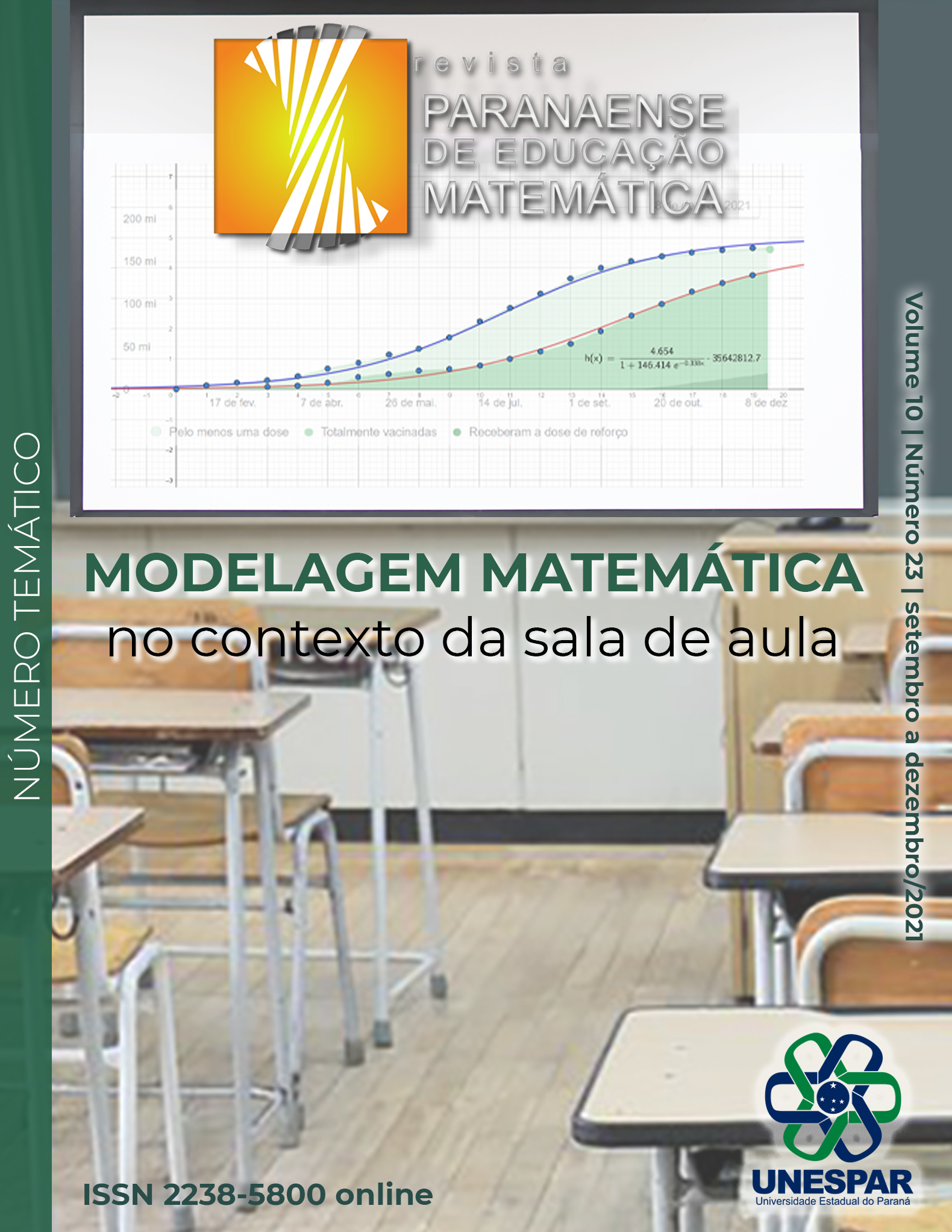MATHEMATICAL MODELING IN EARLY CHILDHOOD EDUCATION: A LOOK AT THEOREMS IN ACTION MOBILIZED IN SITUATIONS INVOLVING THE CONCEPT OF CLASSIFICATION
DOI:
https://doi.org/10.33871/22385800.2021.10.23.30-53Keywords:
Educação Matemática, Teoria dos Campos Conceituais, Gestos, DesenhosAbstract
Early Childhood Education is a compulsory stage of Basic Education for children from the age of 4. Therefore, documents that guide the work to be done at this school stage, such as the Base Nacional Comum Curricular (BNCC) and the municipal curricula, recommend contents to be developed according to the age groups. In common, these documents guide, regarding mathematics, that children should be able to establish relationships between situations in their daily lives with other areas of knowledge, in addition to instruct teachers to value the knowledge brought by children to help them in the construction of new concepts. These guidelines are in line with proposals for working with Mathematical Modeling in the classroom. In this context, this study aimed to investigate the process of construction, by children of this school level, of the concept of classification present in the curriculum, favored by Mathematical Modeling. For the analyses, we referred to the Theory of Conceptual Fields, in which we identify the theorems in action, mobilized by the children, which indicate understandings about the concept of classification through their gestures, speech, and drawings. Supported by this research proposal, in this article we present the results of the analysis undertaken, based on the data obtained during an activity about healthy eating. The analyses enabled the identification of theorems in action, mobilized by the children, which were made possible by the development of the steps that constitute a Mathematical Modeling activity.










